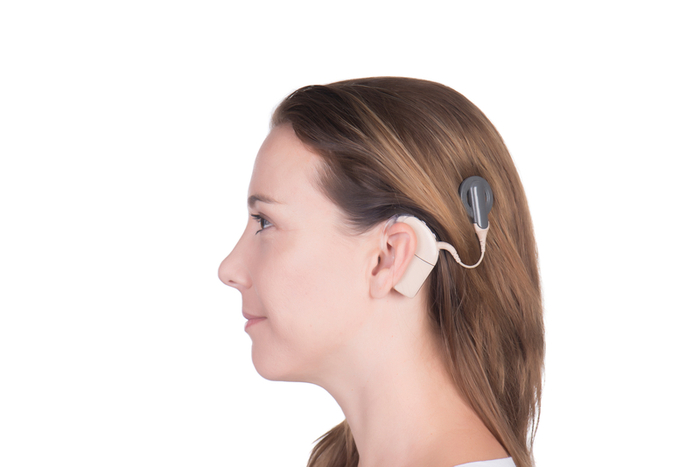
Cochlear Implants
Cochlear implants can help restore a sense of sound to individuals with sensorineural hearing loss. This type of hearing loss most often occurs when the tiny hairs in the cochlea are damaged so that they are unable to transmit sound vibrations to the auditory nerve. The implant allows the individual to hear by sending sound directly to the auditory nerve and bypassing the damaged hair cells of the cochlea.
A cochlear implant is comprised of an implant body and a speech processor. The implant is placed under the skin behind the ear using a small incision. The electrode of the implant is then placed in the cochlea (inner ear hearing organ). Following the surgery, after the area has healed, the implant is activated and programmed.
The Benefits of Cochlear Implants
Cochlear implants can open up a whole new world of sound to individuals with profound hearing loss, including:
- The ability to hear normal volume speech
- The ability to talk on the phone or hear the television
- The capacity to understand speech without having to lip read
- The ability to distinguish between soft, medium, and loud sounds
- The ability to control your own voice so that others can better understand your speech
Considerations
For some individuals, the implant may initially make sound seem synthetic or mechanical; however, most patients adjust to this within a few months when the sound becomes more normal. Cochlear implants also contain a small magnet. This may mean that you have to have your head wrapped by your ear specialist to prevent movement of the magnet if you need to have an MRI.
Ideal Candidates for Cochlear Implants
In general, the individuals receiving the most benefit from cochlear implants have:
- Severe to profound bilateral hearing loss and get limited benefit from hearing aids
- Hearing loss that occurred after learning to speak
- An understanding of both the benefits and limitations of cochlear implants
- No medical issues that would make surgery risky
It can also be a good fit for children who were born deaf. We have a thorough evaluation process that will help us to determine if cochlear implants would be an appropriate fit for you.
At UC Irvine, our Cochlear Implant Center is making innovative strides for patients. Our team of professionals have many patents on cochlear implant designs, and we have ongoing studies that look into the placement and coding of the implants. Call us today for more information about how cochlear implants may help you our your loved one.

